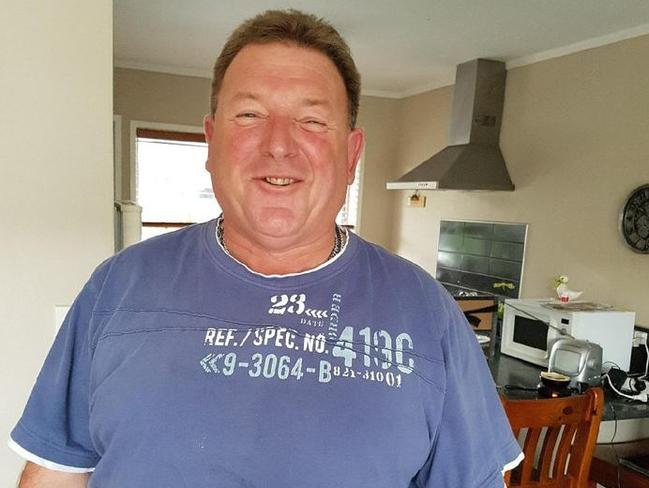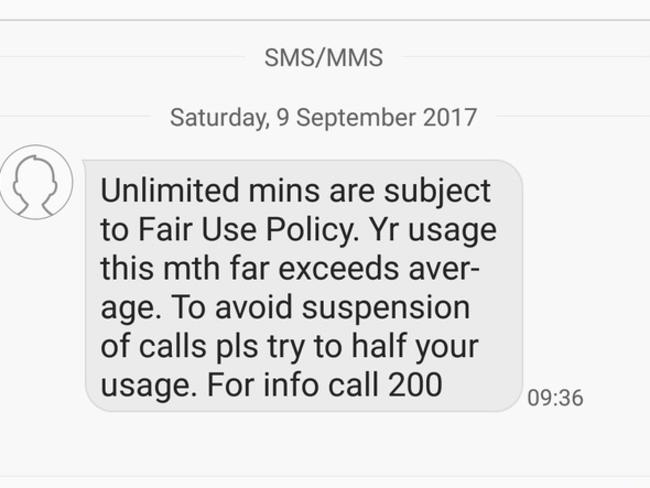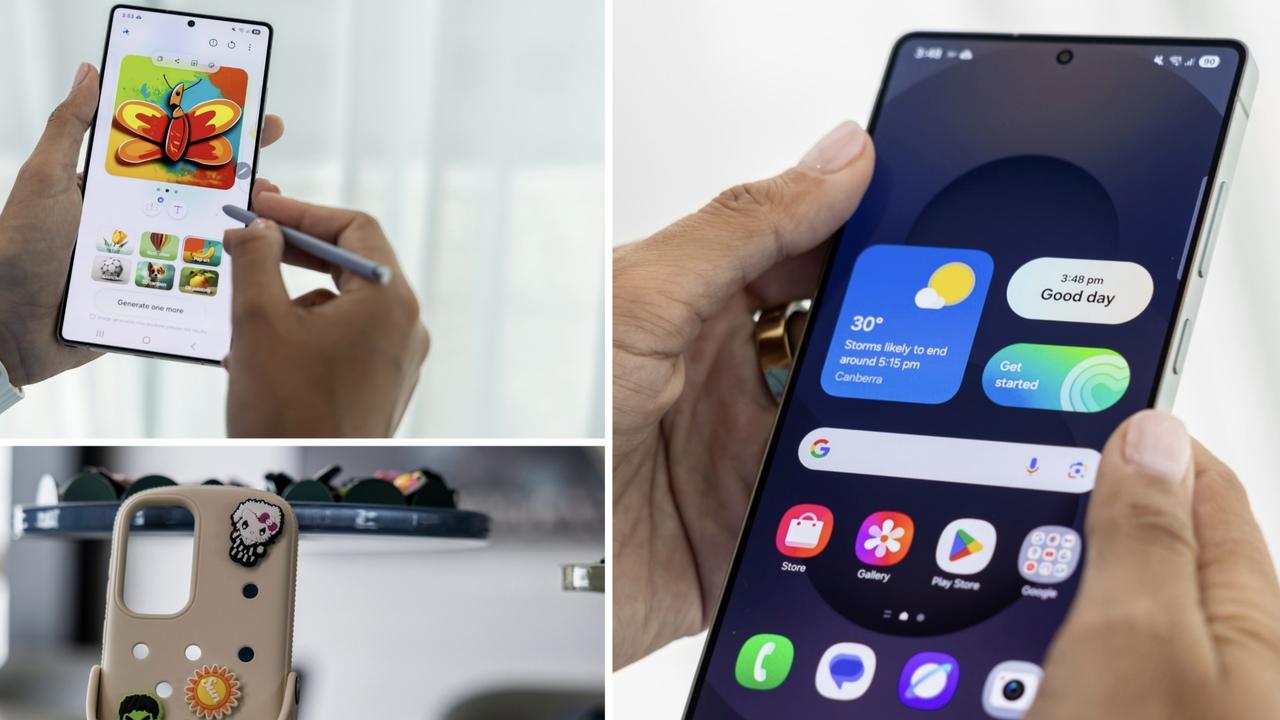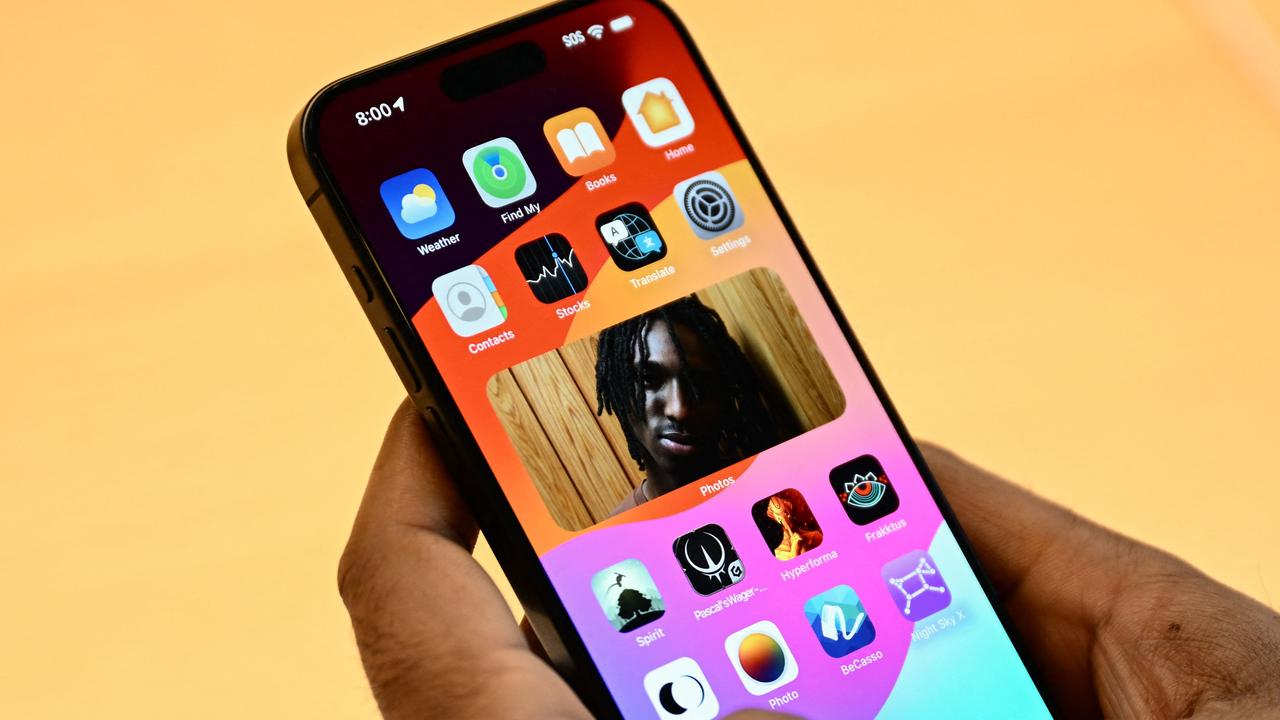Kiwi truck driver on ‘unlimited’ calling plan told to cut down on usage
MIKE Oliver received a text from his mobile carrier this month telling him he needed to halve the number of calls he was making on his unlimited plan.
Smartphone
Don't miss out on the headlines from Smartphone. Followed categories will be added to My News.
A TRUCK driver in New Zealand is perplexed and annoyed after receiving a text message from his mobile phone provider saying he needs to cut down on calls, despite paying for “unlimited” calling.
Mike Oliver received a text from carrier 2Degrees this month saying he needed to halve the number of calls he was making.
Otherwise, he risked being shut off from his “unlimited” calling plan under the company’s fair use policy.
He’s not sure exactly how many minutes he uses, but guesses he chats on the phone for about three hours a day.
Oliver has been a customer of one of the country’s biggest carriers for close to six years, and has been on the unlimited plan since December last year. While no Australian mobile provider offers unlimited mobile data plans, they have become common in countries like the US.
“I do talk to my friends quite a bit in the morning, I call my mates and talk for maybe an hour,” he told the New Zealand Herald.
He hadn’t noticeably increased the number of calls he’d made this month and couldn’t understand why he’d suddenly got the text about a week ago, he said.
“I was gobsmacked by it. I’ve never received a text like that before.”
Oliver called 2Degrees’ customer service centre, where two employees told him that the unlimited calling plan was subject to a fair use policy.
“I said, ‘what about me, I have unlimited phone calls and unlimited texts’. She said, ‘no you don’t sir’, I said, ‘what do you mean no I don’t?’.”

2Degrees, like Vodafone and Spark, has a fair use policy that says the company has the right to enforce reasonable use of unlimited calling and texting.
“Your use of the services must be fair, reasonable and not excessive, as reasonably determined by us by reference to average and/or estimated typical customer usage of the services,” 2Degrees says on its website.
“We will consider your usage to be excessive and unreasonable where it materially exceeds the average and/or estimated use patterns over any day, week or month (or other period of time as determined by us) (Excessive Usage).”
2Degrees spokeswoman Lenska Papich said it was common practice for telecommunications companies to apply fair use policies to “unlimited” calling plans to manage network performance and offer high-use plans to the majority.
“Generally our fair use policy only comes into play in outlying situations where a customer has used many, many times the call minute average, in that plan group, in any given month,” Ms Papich said.
“At this point we will commence contact with the customer in relation to their usage.”
There was a difference between receiving a notification and actually having restrictions applied to an account, she added.
“For all intents and purposes our unlimited calling plans are just that for our customers.
“However, we are also very clear in our advertising materials that a fair use policy applies to manage outlying or excessive usage on these plans.”

The company was unable to disclose how many minutes Oliver had used for privacy reasons, Ms Papich said, and she could not provide information on what the average number of minutes used was for the unlimited plan because that information was commercially sensitive.
“As far they’re concerned, it’s my fault,” Mr Oliver said.
“It’s my fault for having so many friends and speaking to all these people.”
He thought calling the plan “unlimited” was misleading if there were restrictions in place in the fine print, he said.
“You’ve got a sign up there, ‘unlimited minutes, unlimited texts’.”
Oliver was locked into a mobile phone buy-back scheme until December this year and would lose money if he left his contract early.
He had called the Commerce Commission, but it would not investigate because “it appeared there was no significant consumer detriment”, a spokesman said.
But Telecommunications Users Association chief executive Craig Young said: “’Unlimited’ should be unlimited.
“Every ‘unlimited’ plan that I have seen comes with some significant constraints,” he said.
“There has been some significant work done with the Commerce Commission around making those constraints known upfront.”
This article originally appeared on the New Zealand Herald and published here with permission.
Originally published as Kiwi truck driver on ‘unlimited’ calling plan told to cut down on usage


